I've found the perfect portable blender for gym bunnies – Nutribullet Personal Blender review
It was love at first sip
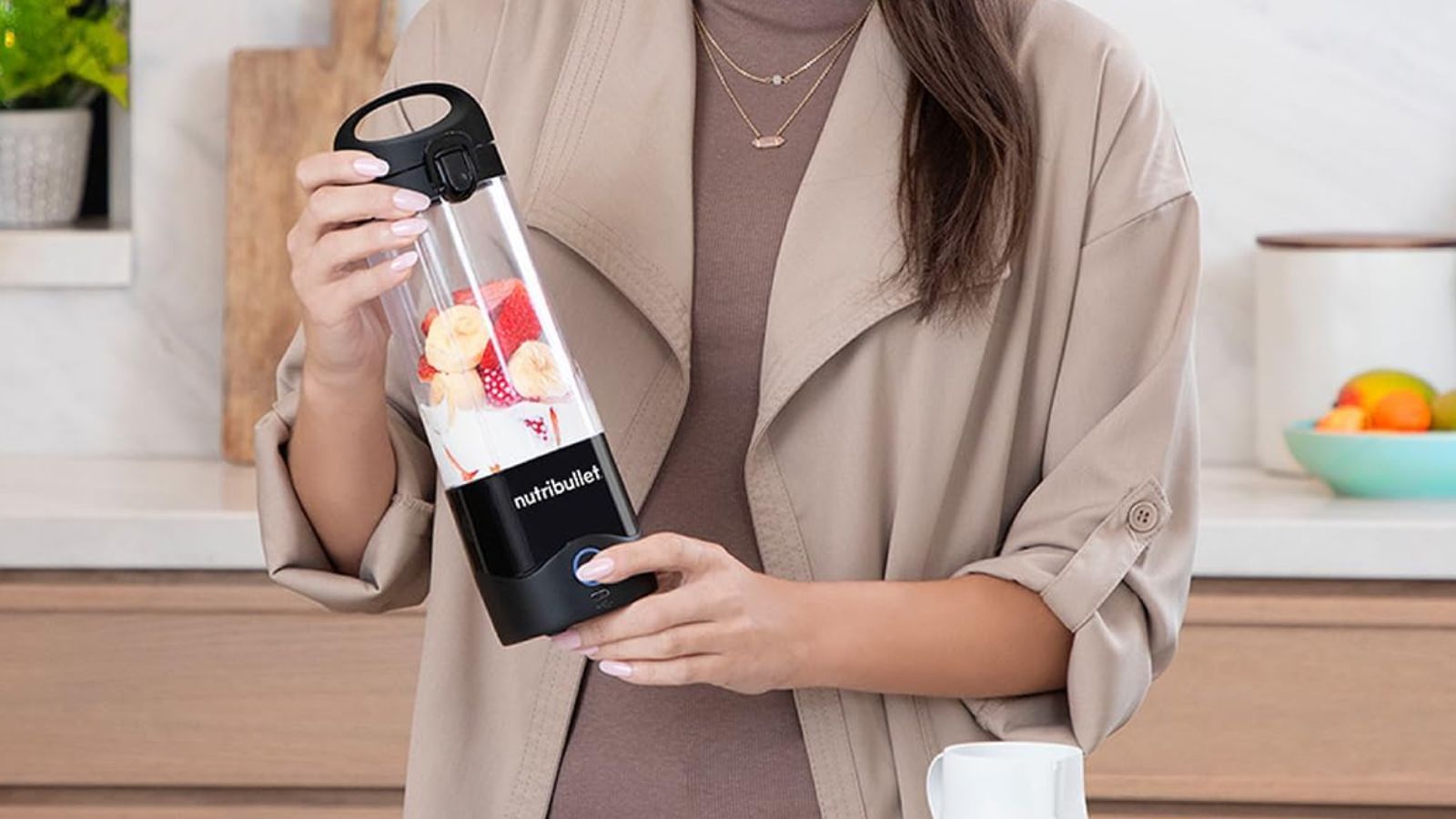
The Nutribullet is slim, sleek, and elegant. The compact, cordless design is perfect for using in the gym, on the commute, and if you're camping. It has 15 blends worth of power and can make a super smoothie, but if you want to crush ice or make big batches, you need to look for other models.
-
+
Incredible value
-
+
Super slim design
-
+
Makes great smoothies and protein shakes
-
+
Good battery life (15 + blends)
-
+
Easy to hold and sip from
-
-
Plastic build isn't as durable
-
-
Needs help with lower-liquid content recipes
-
-
Can't crush ice
You can trust Homes & Gardens.

If you know your blender brands, it will come as no surprise to you that Nutribullet have launched a single-serve blender. They've been making impressive, sleek bullet blenders for decades. The latest addition to their range - a slim, bottle-shaped portable model - is already garnering an impressive reputation.
To be one of the best personal blenders on the market is quite a demanding task. These models are used by everyone from gym-goers and morning commuters to campers, all of whom have different needs. A good portable blender needs to have a good seal (we don't want any leakage), a powerful motor (for blending your ingredients), and a design that's easy to drink from and even easier to clean. Then there are other factors that play into it, such as battery life, noise levels, and aesthetics. As you can see, it takes a lot to make a good portable option.
Whilst Nutribullet hasn't done anything innovative or disruptive to their blender, what they have done is combine all the features of the best blenders to make a hybrid model. This is incredible value, it's stylish, and it's easy to use. There's a lot to love. And here are all the details.
Specifications
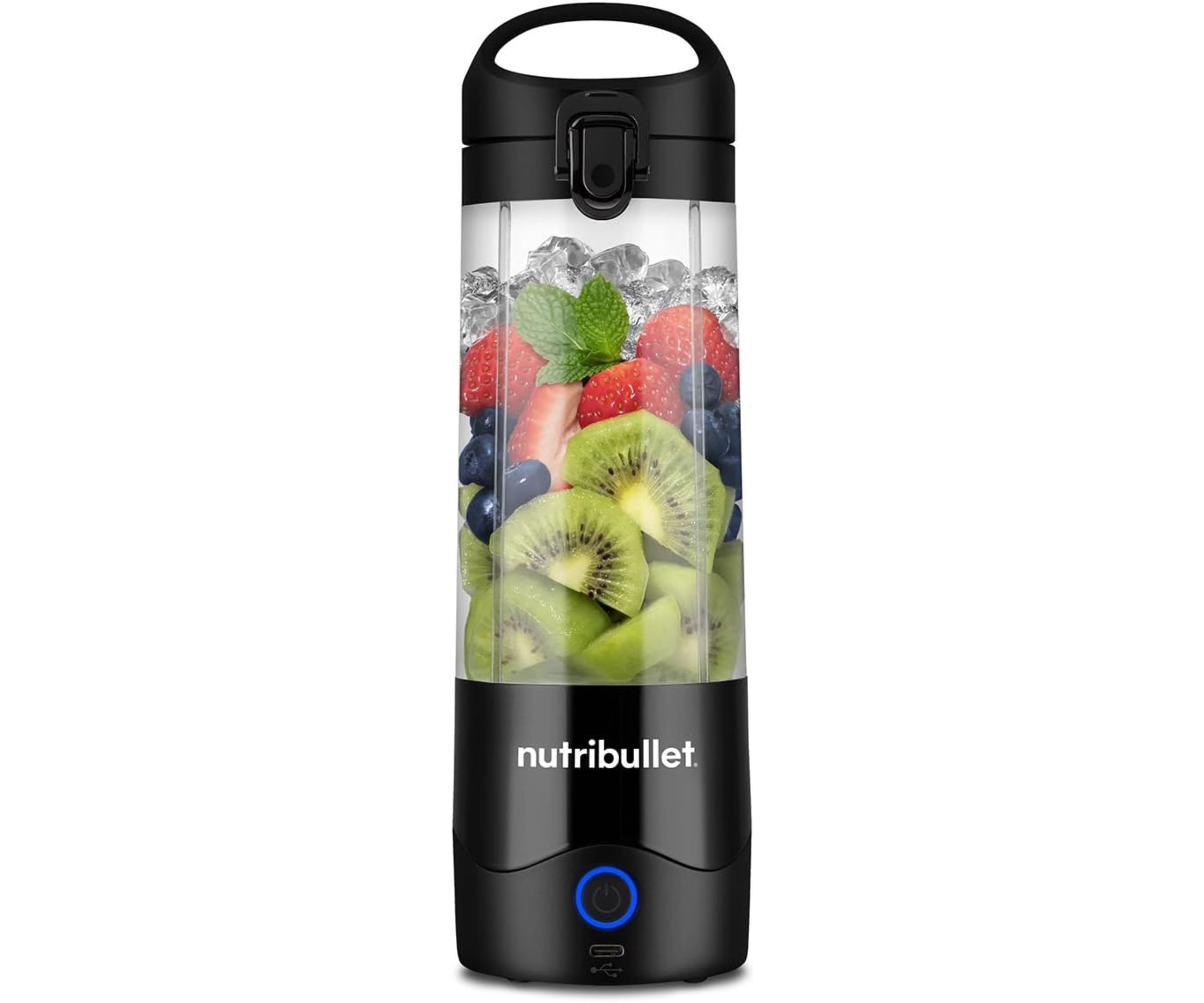
| Dimensions | 3 x 3.5 x 10.7 icnhes |
| Weight | 1.56 lbs |
| Capacity | 16.7 oz |
| Material | Plastic and alloy steel |
| Power | 100 watts |
| Color options | Black, light blue, magenta, navy, purple, white |
| Dishwasher safe | Yes (the removable parts are) |
Unboxing
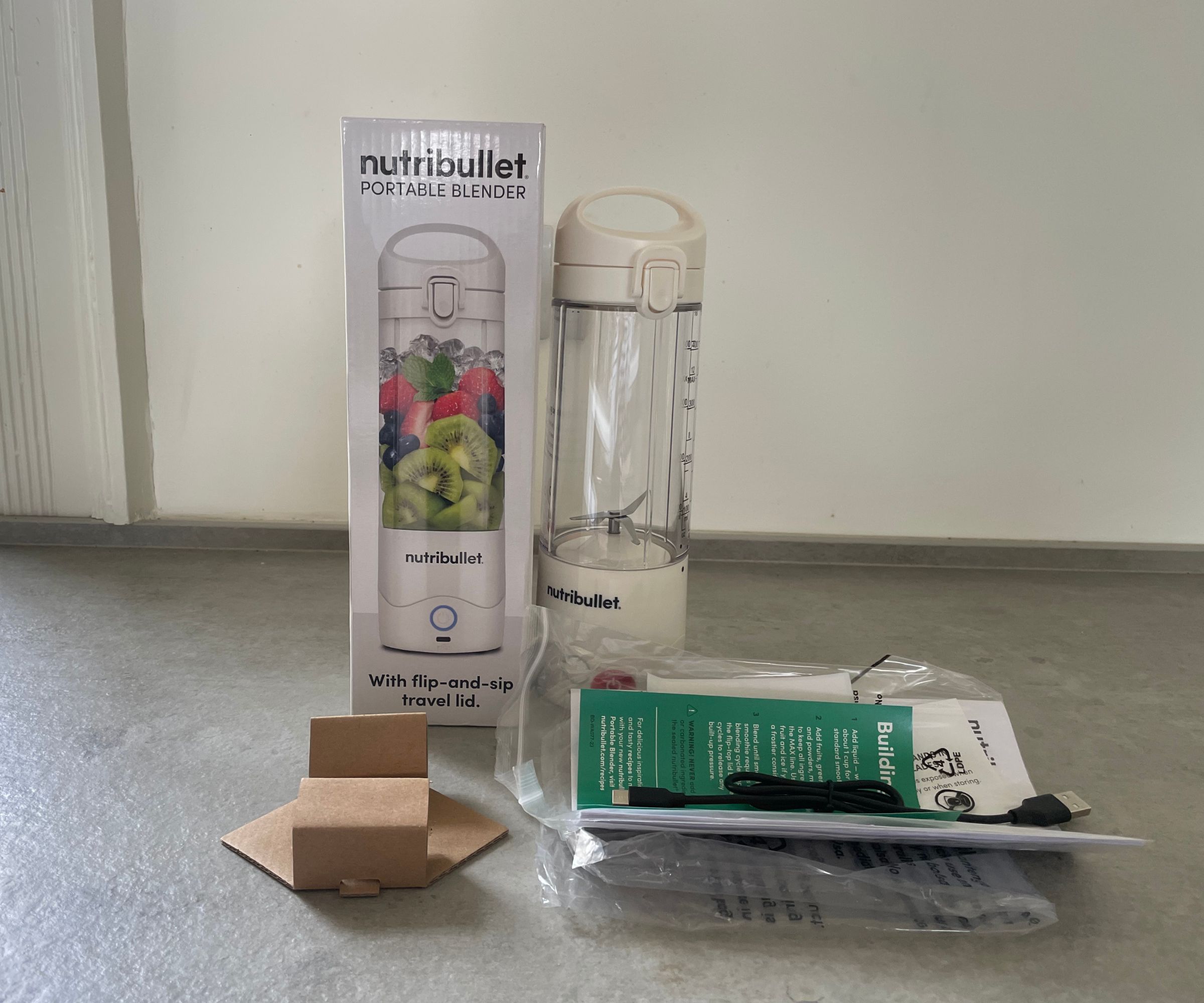
The packaging around the Nutribullet is very minimal. The slim cardboard box is completely recyclable and then there's a thin plastic sleeve to protect the blender from scratching in transit.
Nutribullet will also give you a USBC charging cable (but not a plug) and a getting-started guide. I plugged mine in to give it some juice (pardon the pun) before testing, but I've read plenty of reviews where people's blenders arrived with power already.
The bottle itself is Tritan, which feels relatively robust. It's not quite glass, but it has that effect. The design makes it nice to hold. You can loop the lid on your fingers, hold it in the palm of your hand, and it sits nicely in a backpack bottle holder and in a handbag. So far so good.
Who would it suit?
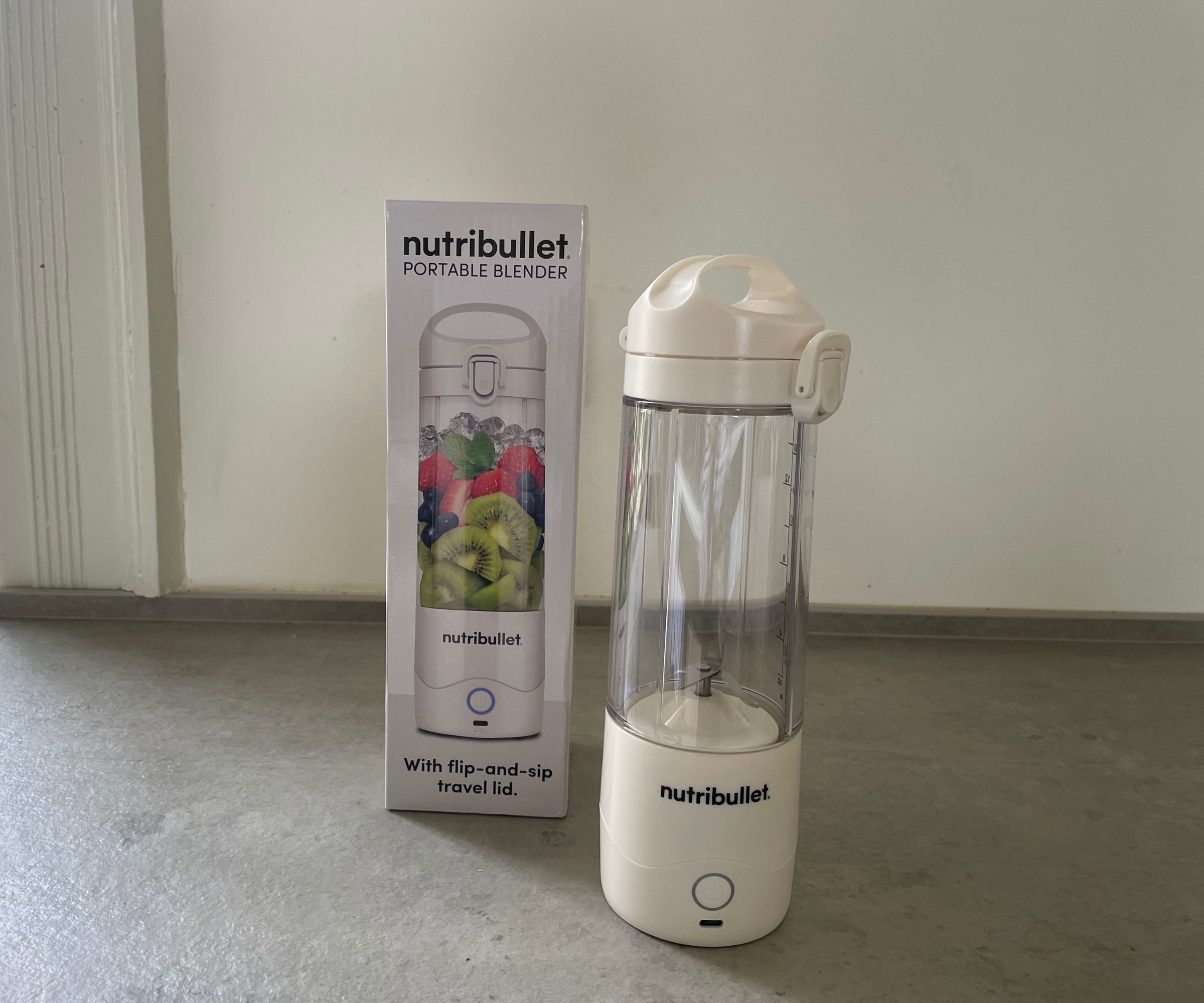
Nutribullet has designed their portable blender to have a broad appeal. The elegant, slim, modern design is easy to imagine in a range of settings: at a picnic, in the gym, in the office, or on the kitchen countertop. Pair the design with the range of colorways (from light blue to navy and magenta) and the Nutribullet will suit almost any home.
Even though it looks (and feels) like a premium portable blender, this is one of the cheapest portable models on the market. I quite like this aspect because it broadens the appeal of the Nutribullet. It's the budget option without feeling like a cheap alternative to the Ninja or BlendJet 2.
The sleek design and reasonable price tag mean that this has a pretty broad appeal. It also has a battery life that can withstand 15 blends before needing a recharge, which is perfect for campers who might not have access to a plug for a while.
The people who might want to look elsewhere are those who want capacity. 16 oz isn't huge and there are bigger, more powerful models out there. As a generic investment, this is good.
What is it like to use?
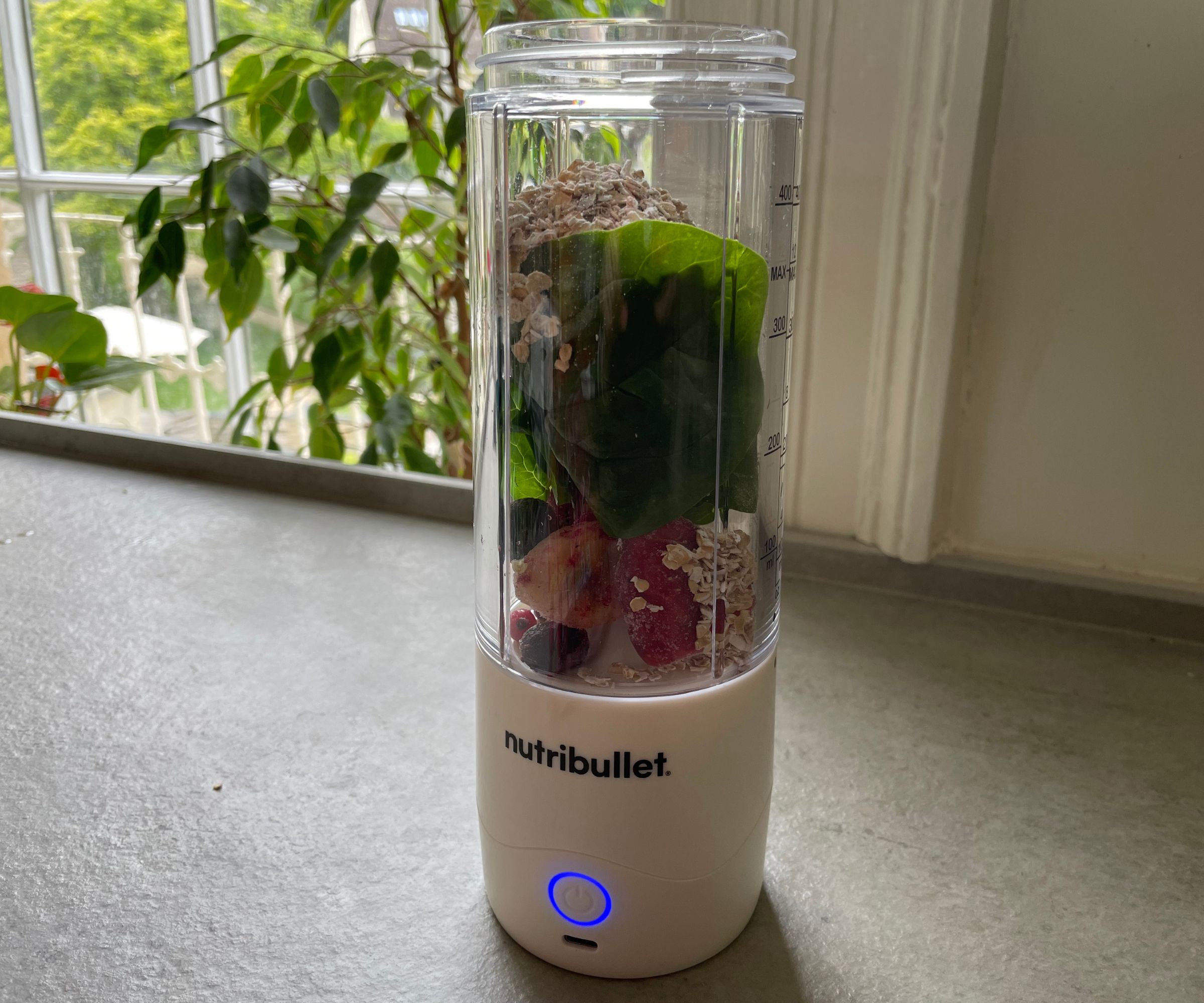
As soon as I unboxed the Nutribullet, I put it on charge. I'd recommend making a habit of keeping this on charge because there's nothing worse than a half-blended smoothie that you can't finish working on because your charger is at home. Nutribullet estimated that a full charge will give you fifteen blends, which is about what I've found. That's better than plenty of models on the market, but I never like to change it running out.
Once I had given this half an hour plugged in, I thought it should have enough to get through our tasks. I took a quick glance at the instructions, which are super simple. All they tell you to do is add your ingredients, secure the lid, and press go, so that's what I did.
Test 1: smoothie and protein shakes
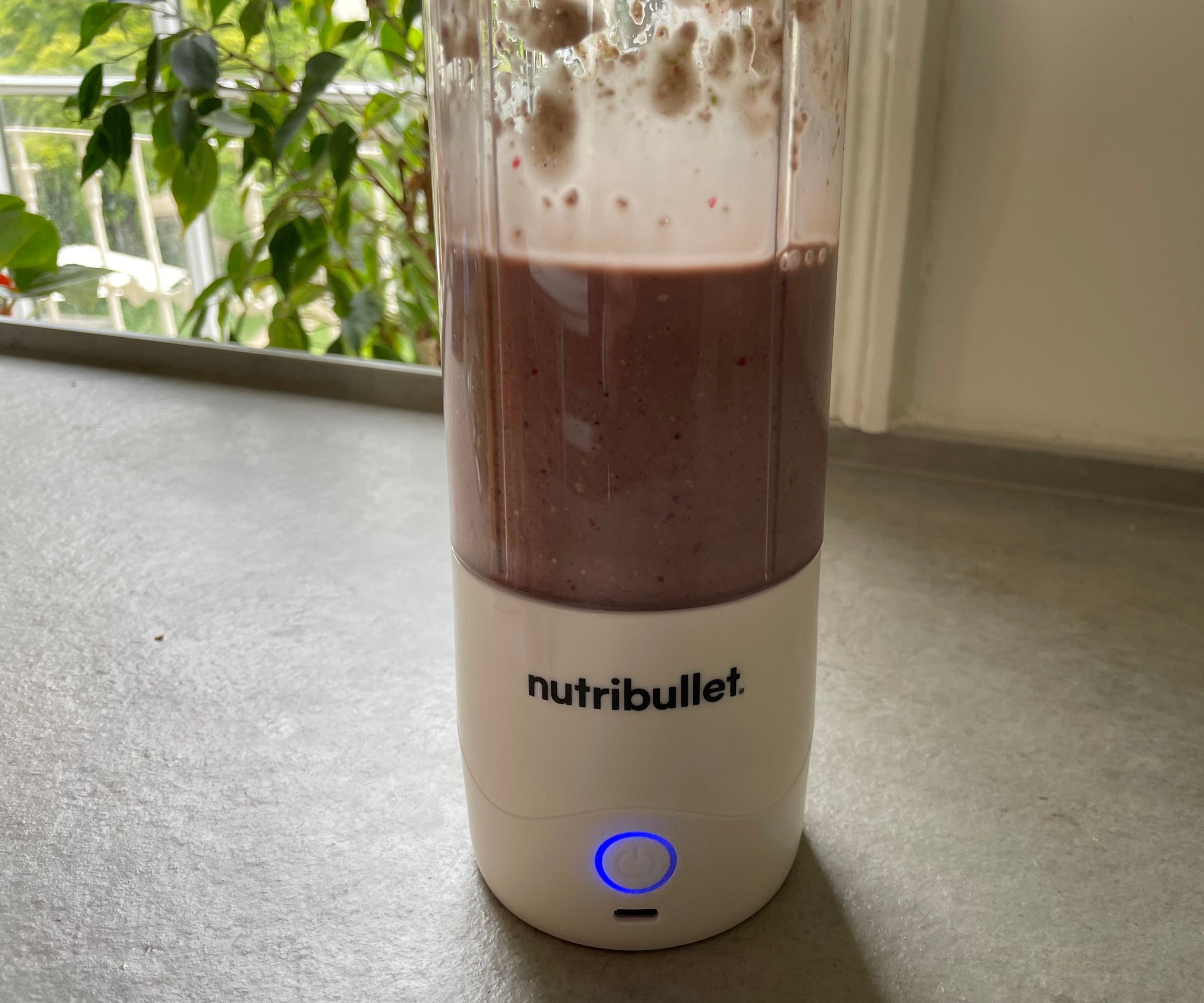
The main reason most people invest in a portable blender is for making smoothies and protein shakes, so we gave this a deep, detailed trial across a range of different recipes.
I started off simple, using soft strawberries, bananas, spinach, almond milk, and oats. The Nutribullet made light work of this recipe, which isn't much of a surprise. The soft strawberries shouldn't be too challenging. Spinach and oats are probably the toughest ingredients to blend and, in this context, they didn't pose any issues.
With that in mind, I tweaked the test a bit. I added frozen strawberries, frozen blueberries, bananas, spinach, almond milk, and oats, to see how well the small blades could handle big, frozen chunks of fruit. Surprisingly, this did a pretty good job. I did have to stop and shake the Nutribullet around to get all of the chunks fully blended, but after a few minutes, I had another successfully smooth drink.
In the first round, I just pushed the button and let the blender do its thing. However, when it was struggling with the second task, I made use of the pulse function, which was surprisingly versatile and powerful. If you want to have a little more agency over how thick your smoothie is, this is really helpful.
When I wanted to sip straight from the bottle, the lid hinges back really far. It's a small detail that sounds insignificant, but it makes a big difference to the experience actually drinking from the Nutribullet. I didn't get hit in the face with the lid. It stayed neatly in place. Plus, the weight of the bottle didn't actually make it hard to hold. You might need to support the base a little more, but it wasn't a problem.
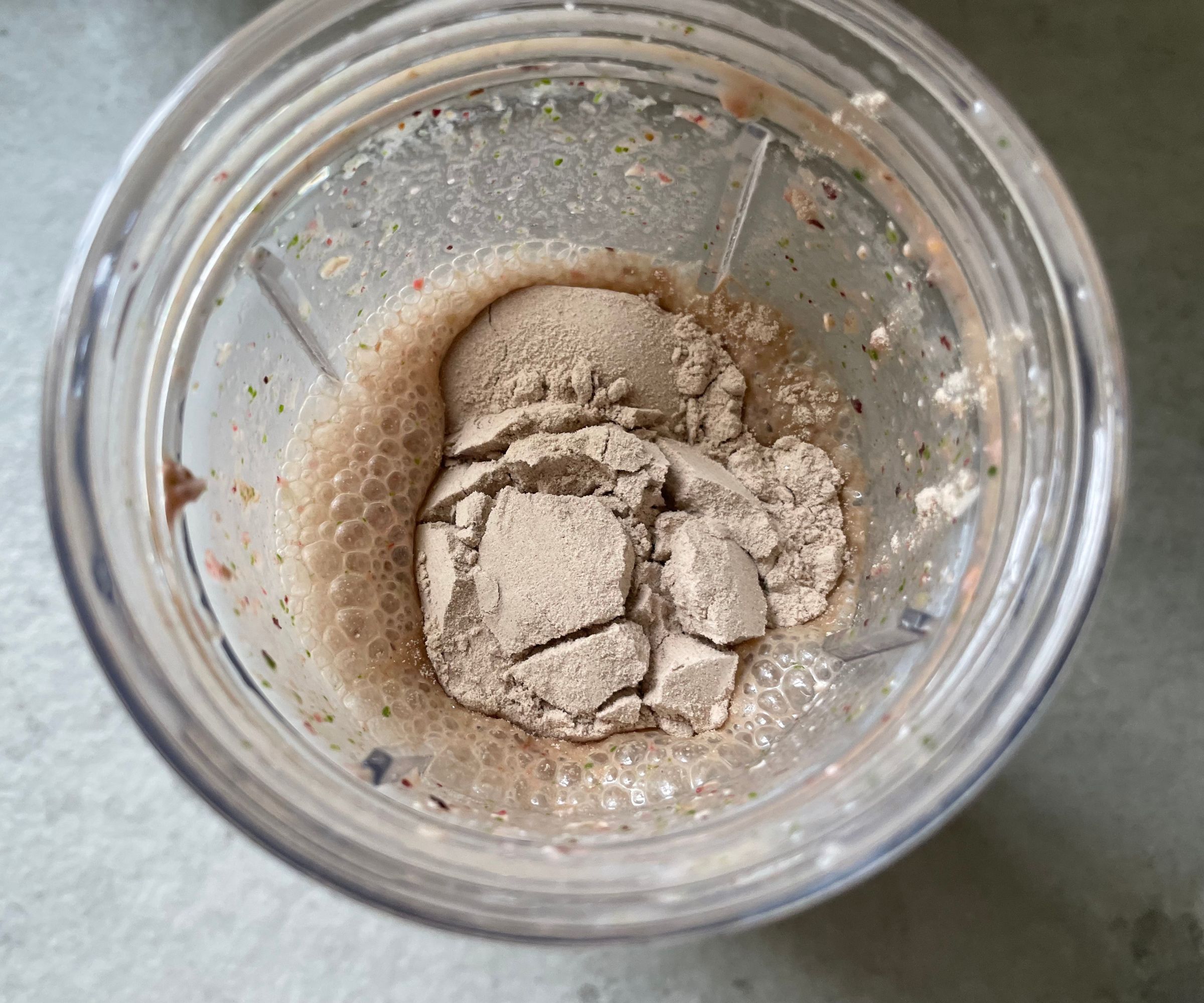
The final test for both smoothies was how easily I could turn them into a protein shake. I added a scoop to both mixes and set them running in the Nutribullet. Neither mix went lumpy or bubbly. The powder was incorporated smoothly and effortlessly.
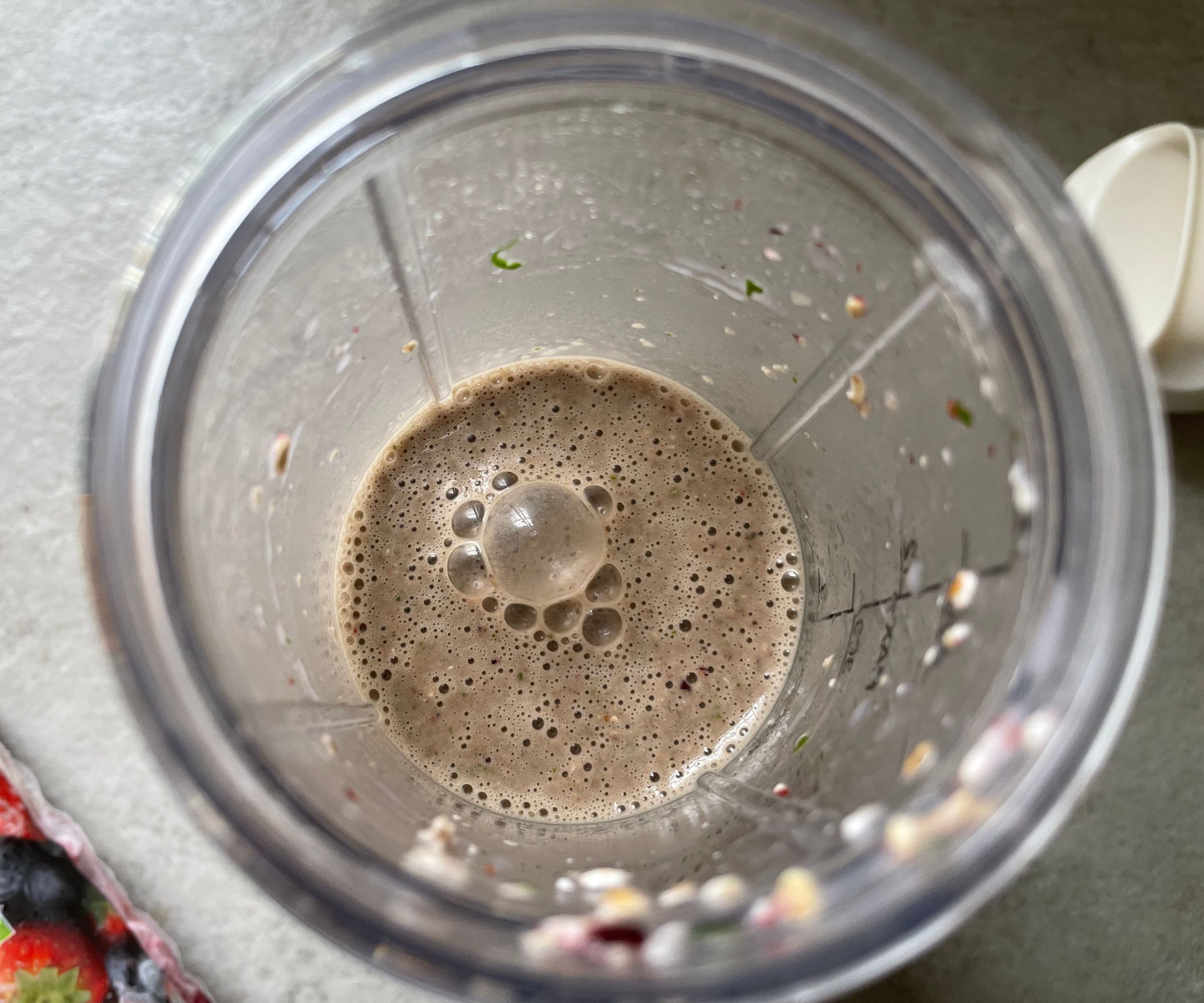
Test 2: dips
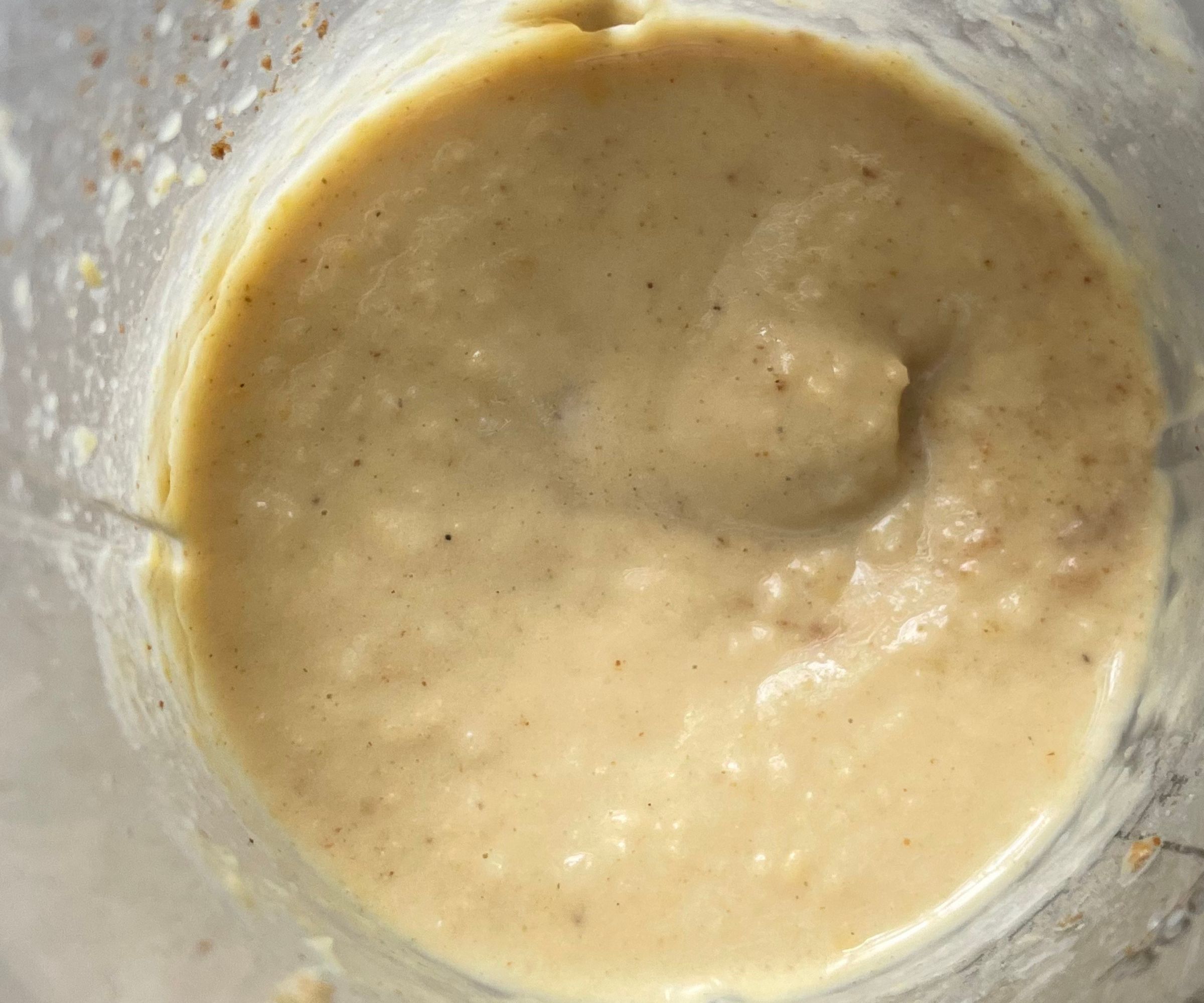
We give all our blenders, portable or not, a trial for making dips. We use them to make hummus, salsa, and guacamole so that we can see how it fares with different ingredients.
Both the salsa and the guacamole were perfect. The soft ingredients worked really well on the pulse setting and they were both spreadable and scoop-able within minutes. The hummus, whilst serviceable, took a little more time.
Normally, I would add a whole can of chickpeas to a blender, but the capacity of the Nutribullet didn't seem particularly well-suited to overfilling, so I tested just half a can. I added in a spoonful of tahini, some cumin, a squeeze of lemon, and a pinch of salt. I could see that the lower moisture content was making it tricky for the Nutribullet to make some good progress, but, with me shaking the Nutribullet and the pulse function running, it gradually worked through the chickpeas, making a smooth paste. There was still some texture to the dip, so it had quite a 'homemade' feel, but it was still good.
Test 3: crushed ice
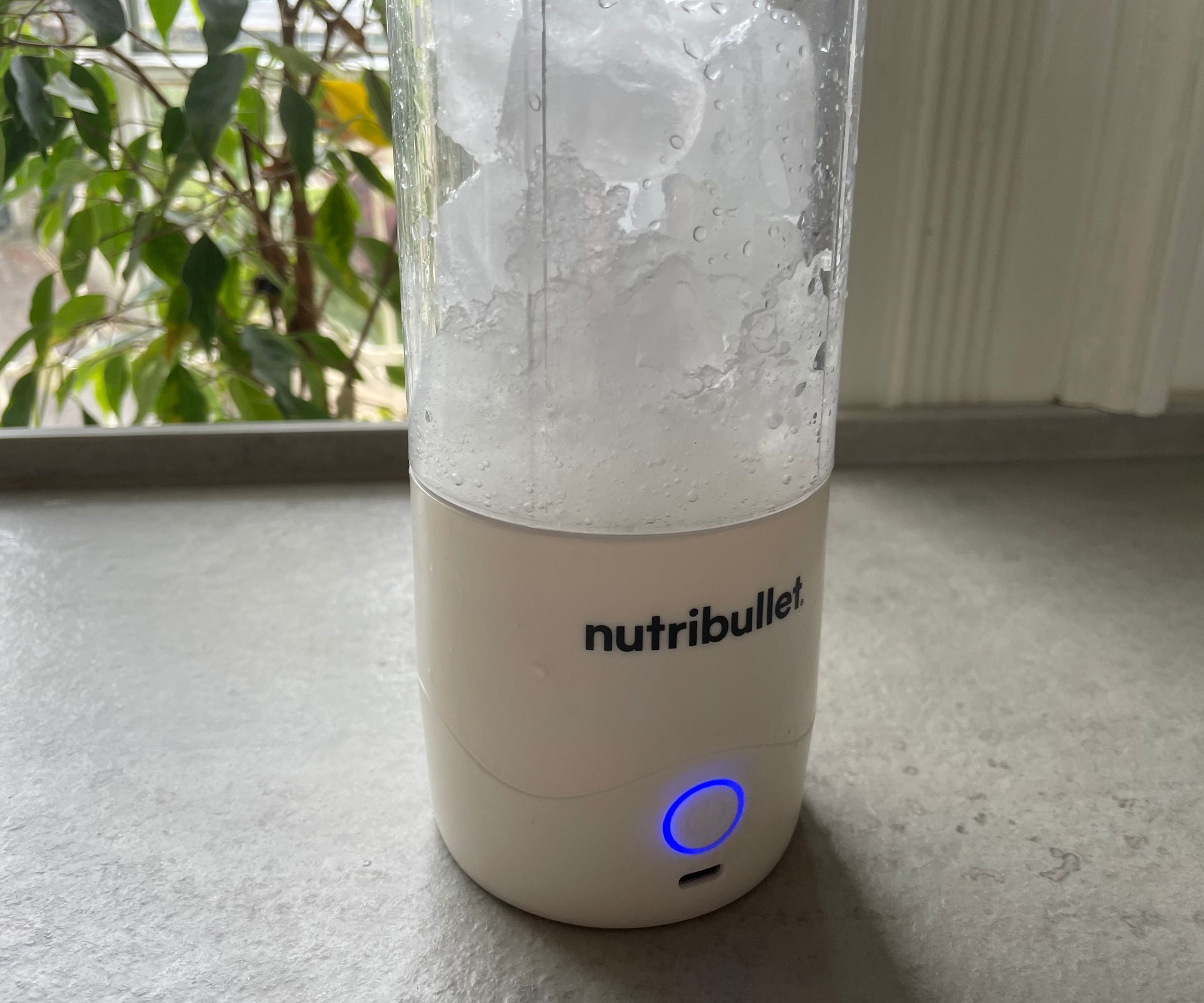
Crushing ice is a test that we give all of our blenders, but it's rare that portable blenders can actually do it. The small, tubular shape of the Nutribullet just isn't conducive to smashing ice cubes into fragments.
Nonetheless, I put a few ice cubes into the bottle, added a splash of water, and set it running. I left the ice clattering around the inside of the Nutribullet for two minutes before I concluded that it definitely wouldn't be able to crush the ice. It's an unfair test to put the Nutribullet through, but it's good to know about.
Cleaning, storage, and maintenance
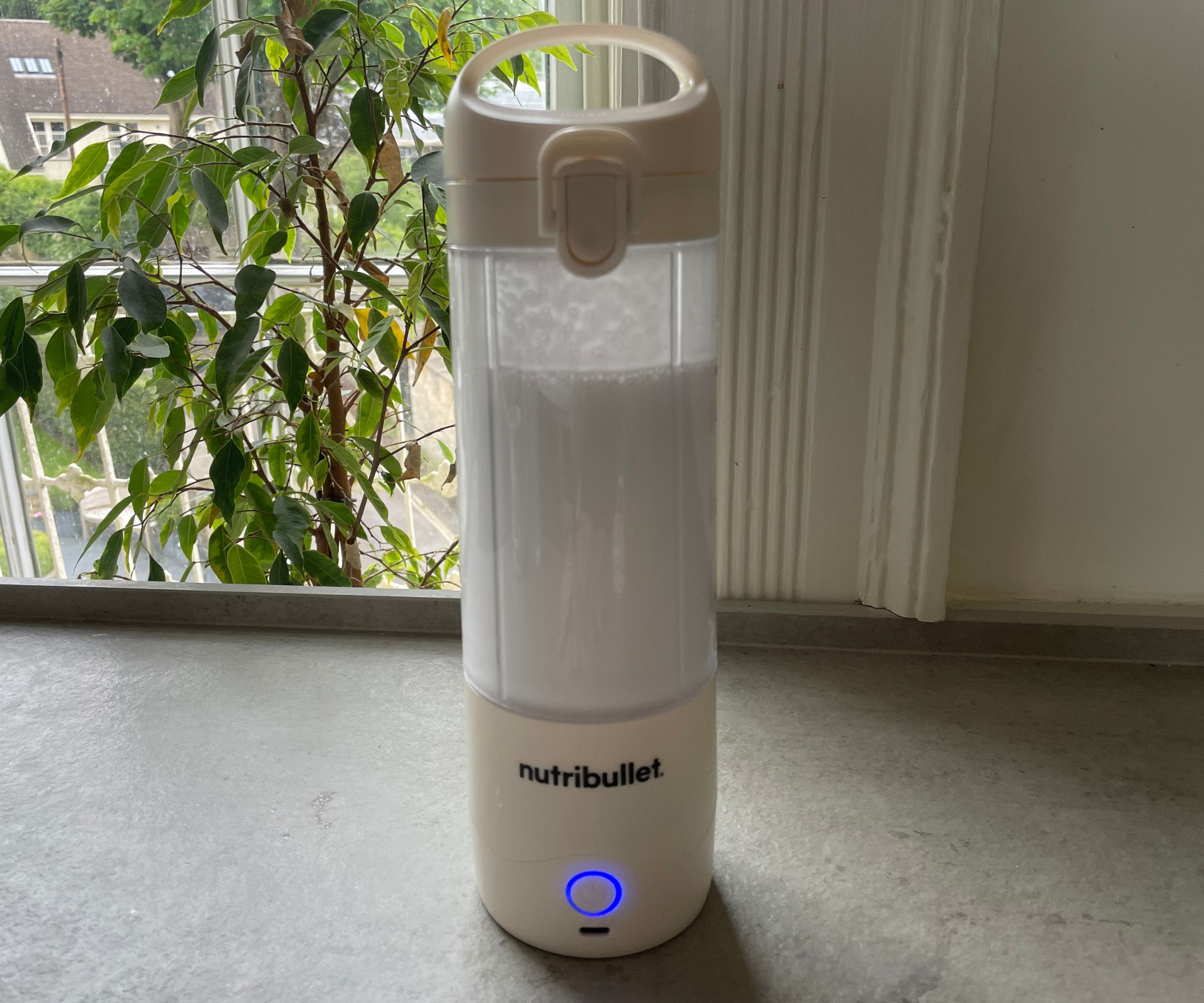
Cordless appliances can be tricky to clean because you can't always put them in the dishwasher. Cleverly, Nutribullet has made all of the detachable parts dishwasher-safe, which is almost the entirety of the blender: the bottle and the lid are detachable, so it's only the base that you can't submerge. This makes life really easy, although I decided to clean it by adding a squeeze of dish soap and some hot water to the blending bottle. I just whizzed this around for a minute and the blender was completely clean.
The other parts of the blender can be wiped down (these don't really get grubby anyway) and then you can leave your blender charging. Anecdotally, the blender can run for about fifteen blends before it needs to be charged (you'll see a red light when it's coming close to running out of battery). I'd recommend making a habit of charging your blender after use. Even though this survived all of our tests with just one quick charge, it can't hurt to keep yours charged up.
As for storing the Nutribullet, you won't have any trouble. Any space that you have in your cupboards for a water bottle can be converted into a spot for storing your blender. It's super simple.
How does it rate online?
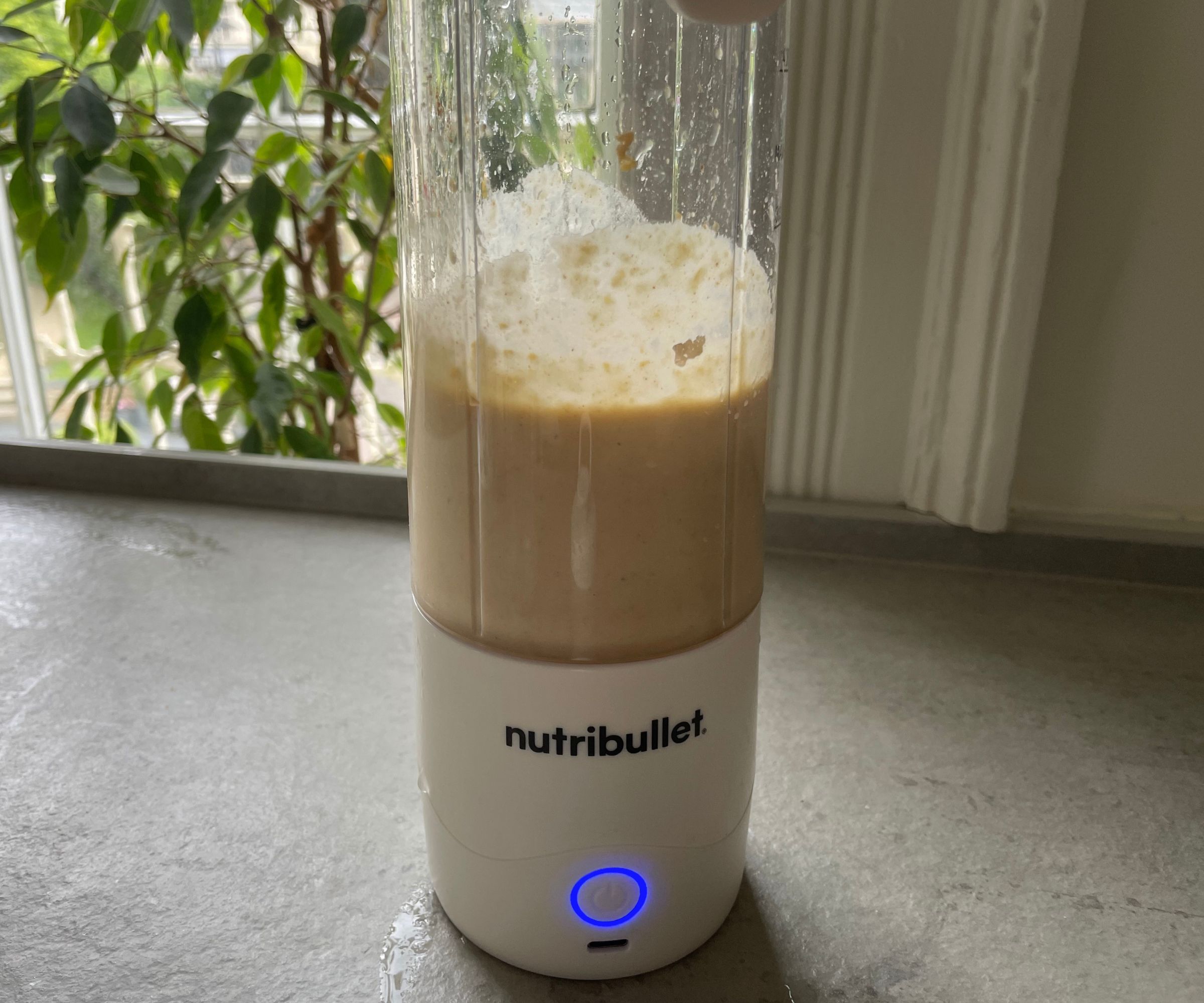
Even though it's relatively new to the market, the Nutribullet rates really well. People seemed to enjoy using this for their morning protein shakes more than anything else, because it's quiet (lots of people praised this) and does a good job at making smoothies (lots of people loved this). A number of people were surprised by how efficient, sleek, and powerful this is.
A number of people identified that this isn't quite perfect when it comes to crushing ice. In fact, one of the most common criticisms of the Nutribullet was that it lacks power. The motor is fine for smoothies and dips, especially if you'll only be using soft fruits and vegetables, but it might struggle if you overfill it or if you're using a full-set of frozen ingredients. However, I think you'd be hard-pressed to find a personal blender that can do a really good job of crushing ice.
How does it compare?
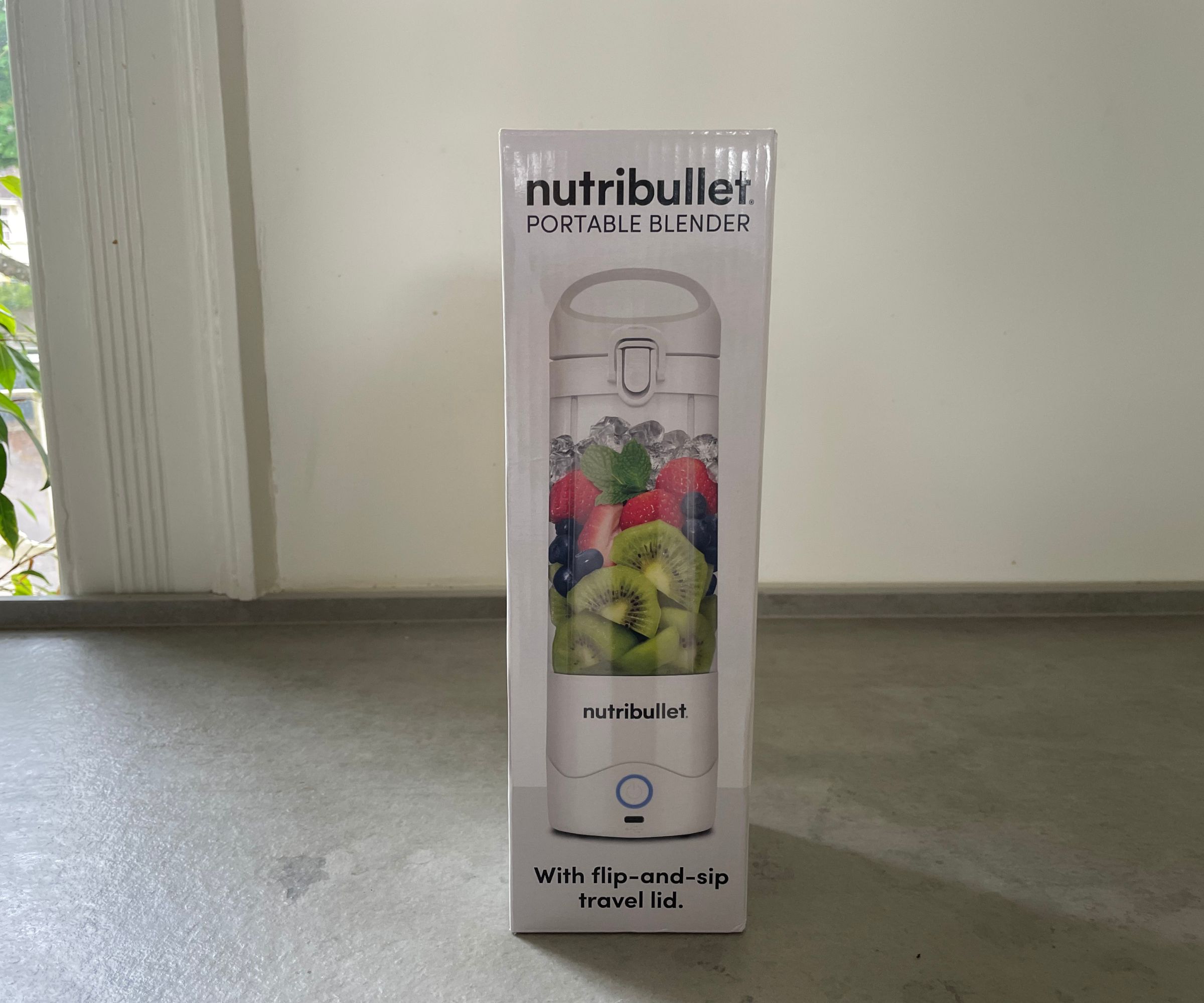
The best portable blender on the market is the Ninja Blast, which looks almost identical to the Nutribullet. It's around the same price point and a little longer, but aside from that, the two are hard to choose between.
Our expert appliance tester, Alex, has been doing an extended test of the Ninja and he loves it. Almost a year later, the leak-proof feature is still going strong, it makes a good smoothie and protein shake, and it's as powerful as ever. The only feature that Alex feels it needs is the indicator light that the Nutribullet has. Without any warning, the Ninja will suddenly run out of charge and you'll be left with a chunky fruit slush rather than a super silky smoothie.
Power-wise, the Ninja is better. It's also bigger and slightly more versatile. However, I actually prefer the ergonomics of the Nutribullet. It's nicer to hold, easier to fit in a handbag, and you don't really need the extra power boost unless you often blend large chunks of thick, frozen fruit.
Should you buy it?
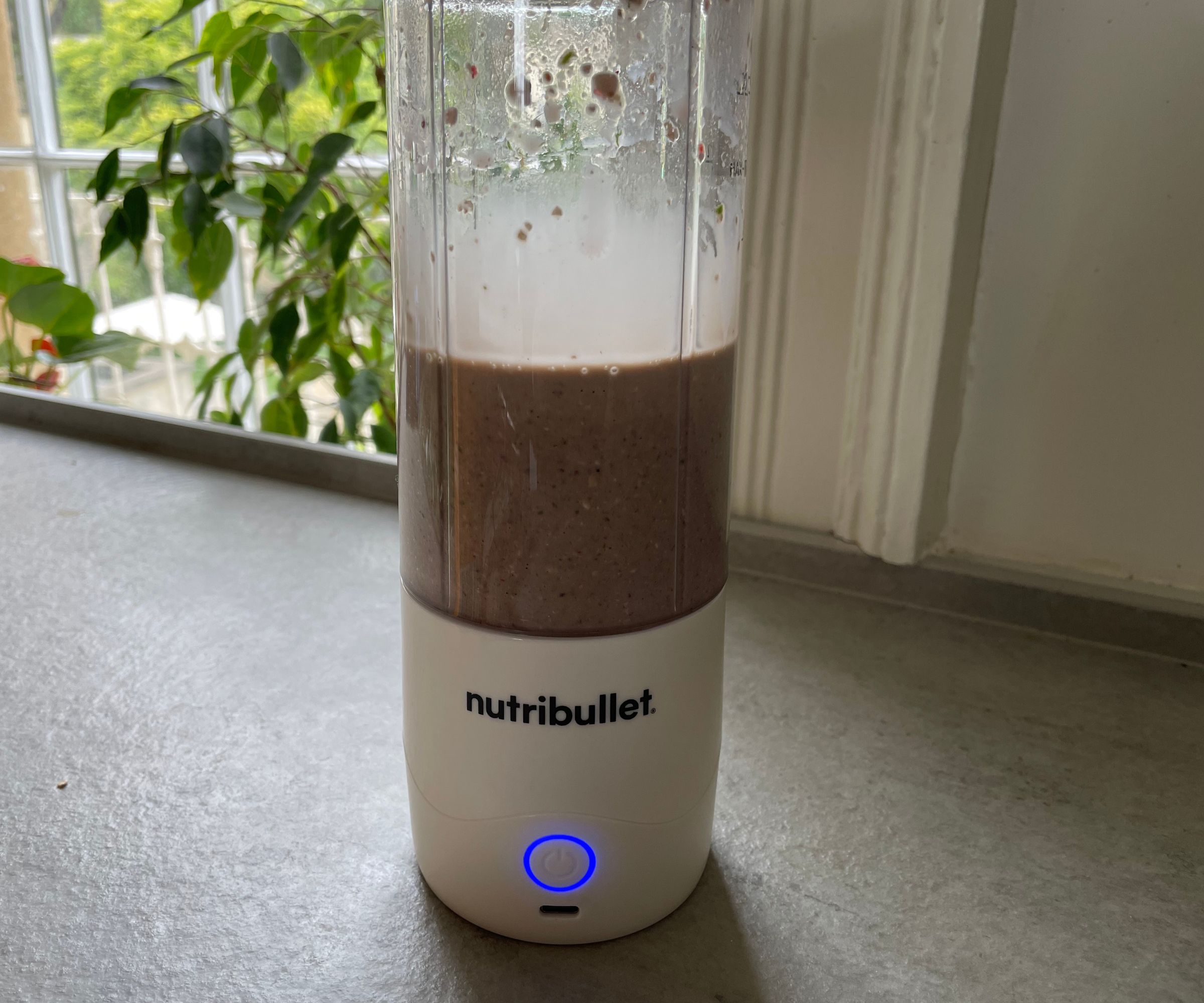
If you're in the market for a portable blender that can make protein shakes with a punch and smoothies silkier than anything you'll have ever tried, this is perfect. It's a great inexpensive option that doesn't feel like much of a compromise. However, if you know you'll need more capacity, it's worth checking out our guide to the best portable blenders on the market. There are bigger, more powerful options over there.
How we test
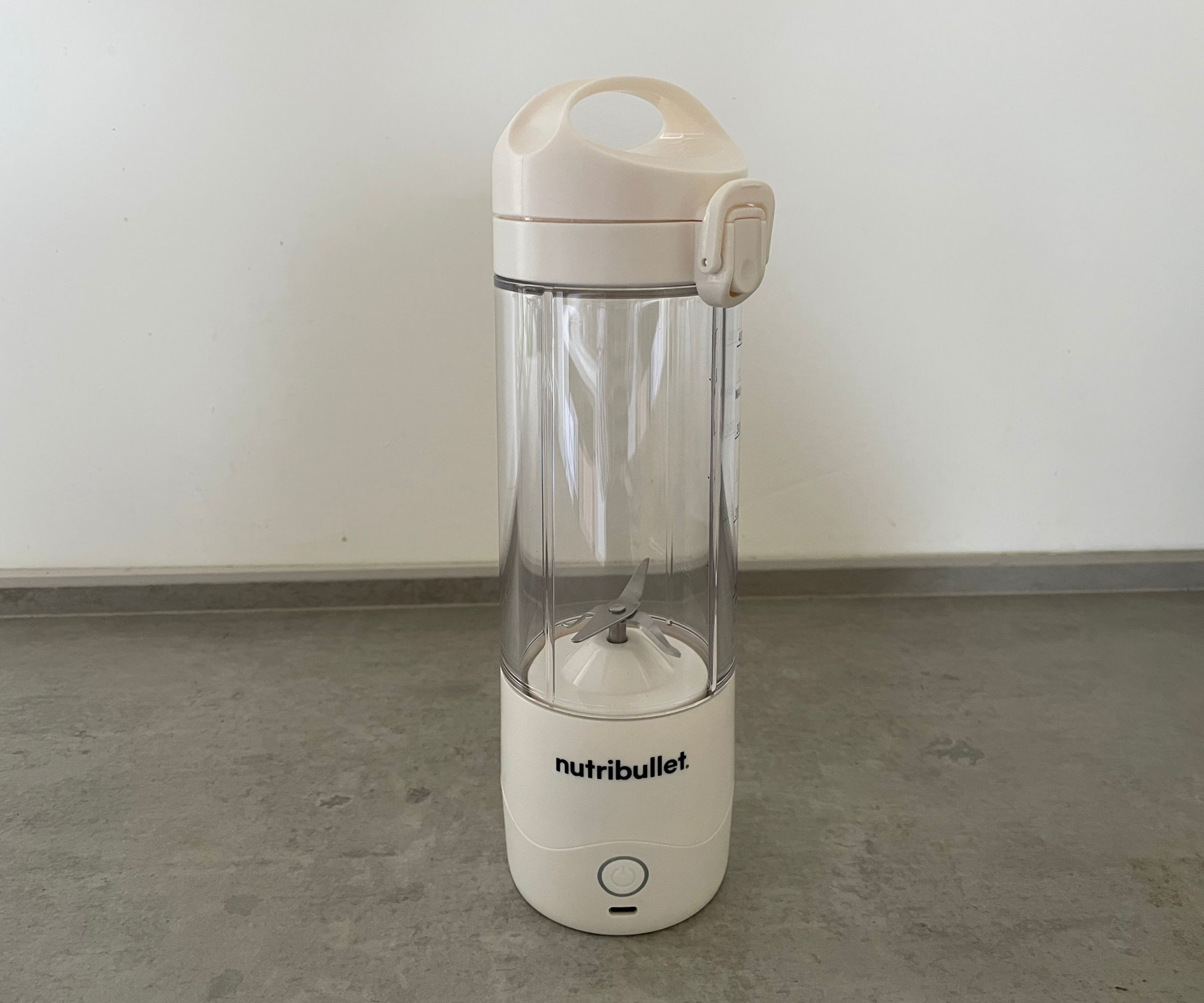
There's a lot that goes on behind the scenes for us to review a blender. Our experts spend their days researching the best portable blenders on the market. As soon as we find a model that we think you'll like, we call it into our test kitchen. Once we have a model in our hands, we make notes on everything from unboxing and first impressions to making smoothies, protein shakes, hummus, salsa, and ice cones.
After we're satisfied with our tests, we clean the blender up, letting you know how easy it is to get sparkling. Then we make notes on how easy it is to maintain and store, before comparing it to other models on the market.
We come to a conclusion about who it suits and whether you should buy it to help you decide whether you should make the investment. If you want to find out more, you can read our dedicated page for how we test blenders.
Sign up to the Homes & Gardens newsletter
Design expertise in your inbox – from inspiring decorating ideas and beautiful celebrity homes to practical gardening advice and shopping round-ups.

Laura is our eCommerce editor. As a fully qualified barista, she's our expert in all things coffee and has tested over thirty of the best coffee makers on the market. She has also interviewed Q-Graders and world-leading experts in the coffee industry, so has an intimate knowledge of all things coffee. Before joining Homes & Gardens, she studied English at Oxford University. Whilst studying, she trained as a master perfumer and worked in the luxury fragrance industry for five years. Her collection of home fragrance is extensive and she's met and interviewed five of the world's finest perfumers (also known as 'noses'). As a result of this expansive fragrance knowledge, she always puts quality and style over quantity and fads. Laura looks for products which have been designed simply and with thoughtful finishes.
-
 Charli XCX's dining room is a 'treasure-trove' of one-of-a-kind pieces – it's the most unique hosting space I've ever seen (and surprisingly replicable)
Charli XCX's dining room is a 'treasure-trove' of one-of-a-kind pieces – it's the most unique hosting space I've ever seen (and surprisingly replicable)The singer's Tudor-style dining room features eclectic furnishings, a mix of patterns and bright colors that all work together beautifully
By Hannah Ziegler Published
-
 This Michelle-Pfeiffer-approved chair is made of a forebodingly unusual material, opening the debate: Is it a rustic stunner, or a danger to sitters?
This Michelle-Pfeiffer-approved chair is made of a forebodingly unusual material, opening the debate: Is it a rustic stunner, or a danger to sitters?The actress took to Instagram with a chair made of a controversially sharp material – and fans are unsure of how they feel about it
By Sophie Edwards Published
-
 Kris Jenner's favorite air fryer, the Ninja Crispi, is the perfect small kitchen solution – it deserves a place on the most compact of countertops
Kris Jenner's favorite air fryer, the Ninja Crispi, is the perfect small kitchen solution – it deserves a place on the most compact of countertopsKris approves of this compact yet powerful air fryer, and so do our own kitchen appliance experts, praising it for its multifunctionality
By Hannah Ziegler Published